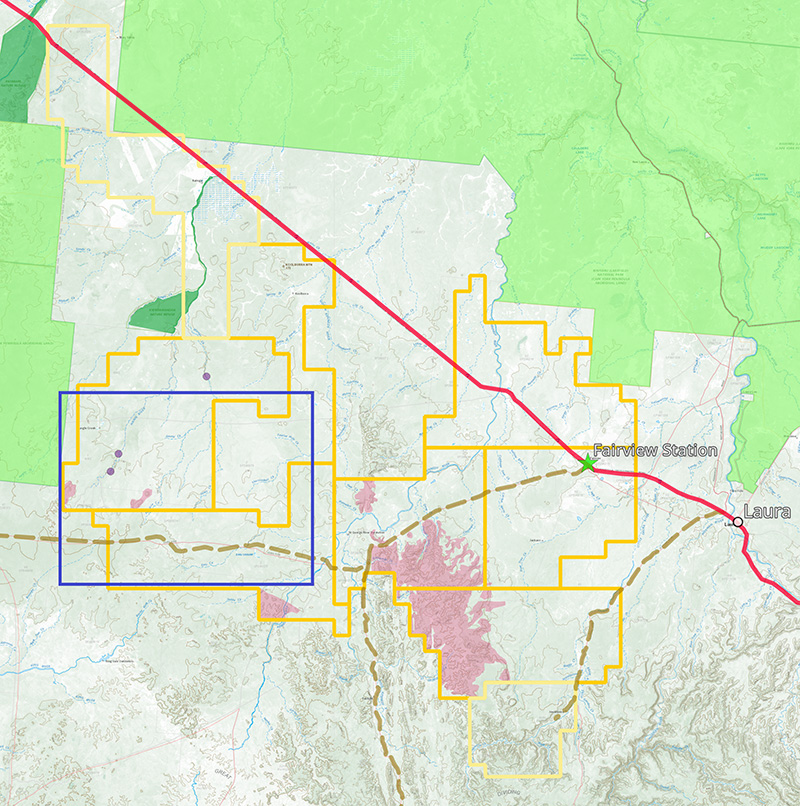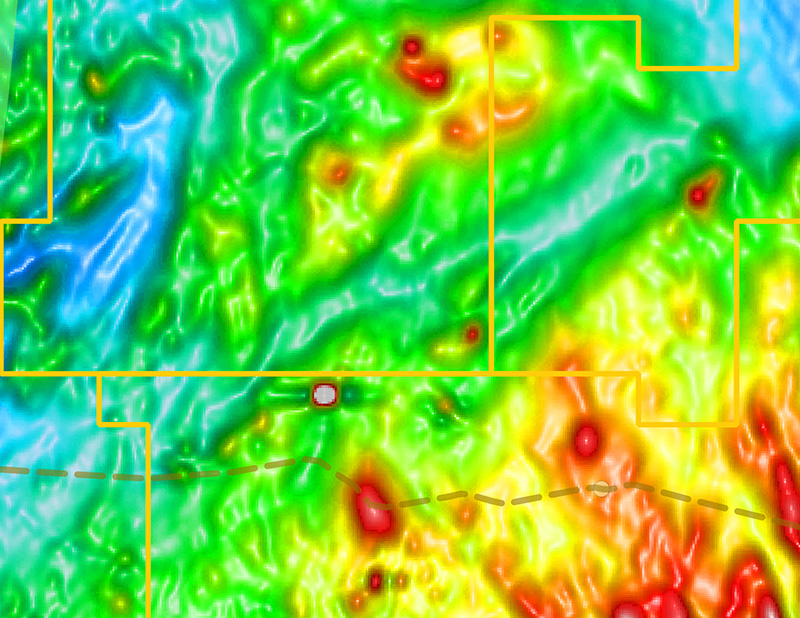Summary
| ANOMALOUS METALS | Anomalous in soils: Ni, Cu, Co, Pd, Ag, Au, REE. Stream seds: Au, Pt, Pd, REE. |
| MAGNETICS | Large NE oriented signature in the north with smaller signatures that may be associated with St George target in the south. |
| DEPTH | 100m in the west to 300m in the north east. |
| ASSESSMENT | Northeast oriented large 19km x 8km zoned to layered mafic-ultramafic intrusive complex with northeast dykes in the magnetic corridor and some orthogonal dyke. In south magnetic targets may be small intrusives to dykes. Intrusive ages are suggested to be Neoproterozoic. |
| PRIORITY | Medium. To complete 2022 sample program before infill soils and aeromag. |
Detail
The northern part looks like a large northeast oriented layered intrusive with more magnetic segments that have been targeted with soils. There are northeast dykes in the magnetic corridor and also some orthogonal dykes that have been targeted with soils. In the southern part the targeted magnetic features are northwest trending bodies and dykes.
- The northern section of this area appears to show a northeast oriented large 19km x 8km zoned to layered mafic-ultramafic intrusive complex with internal magnetic bodies that may reflect discrete intrusions.
- There are northeast feeder dykes on the southwest edge of the complex and some small dykes orthogonal to the main trend.
- Soils, partial leach, have targeted the more magnetic bodies, including some as magnetic blowouts on the northeast dyke trend. Soil results are pending with other yet to be collected after the 2022-2023 wet season.
- In the south, specific magnetic targets may be small intrusives to dykes related to another intrusive complex.
- In the far northeast the depth to basement is predicted to be 100m in the west and 300m in the south based on limited historic drill holes drilled by Utah.
- Intrusive ages are suggested to be Neoproterozoic and related to the breakup of Rodinia.
- There is potential for significant discoveries of magmatic Cu-Ni-PGE mineralisation in this area.
Location


